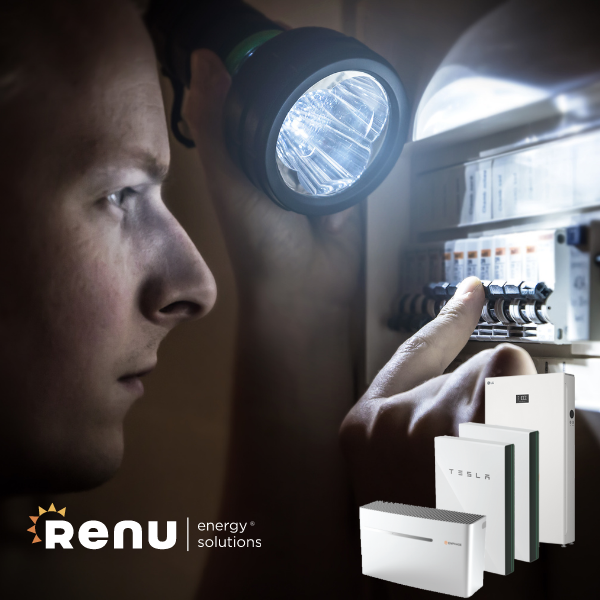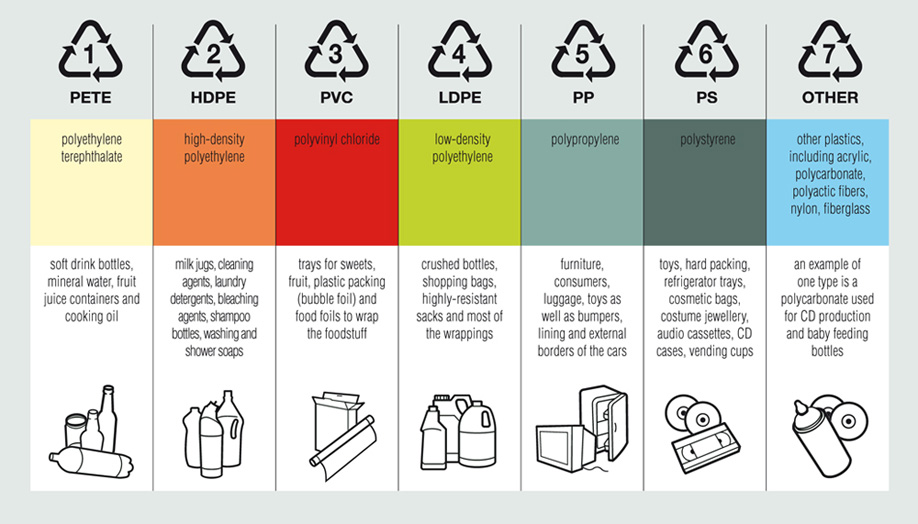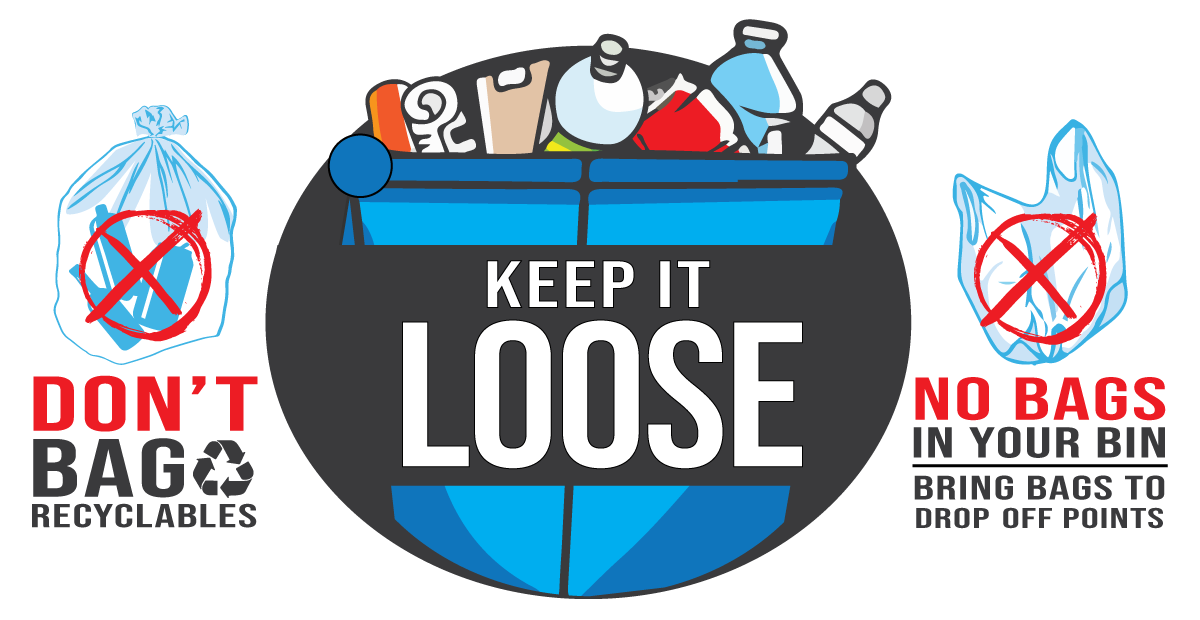
by Renu Energy | Apr 17, 2023 | Renu Blog
Recycling is one of the most accessible ways people can practice sustainability on a daily basis. Everyone uses plastic materials and products at some point whether they are eating out or cleaning out old files in the office. Many assume that anything made out of paper and plastic can is recyclable, but there’s more to recycling than just tossing paper and plastic into a blue bin. In fact, there are rules to recycling that many may be unaware of. The list below contains recyclable materials and non-recyclable materials.
Recyclable Materials
- Plastic Containers and Bottles
Plastic containers & bottles that are dried and cleaned may be tossed in recycling bins. These containers include bottles, tubs, jugs, and jars. Checking the bottom of a container can help one determine the recycling capabilities of the container. A logo from how2recycle.info might be found here that gives instructions and describes the kind of material that is being recycled. However, the circle of arrows doesn’t necessarily mean the item can be recycled. Polychem USA provides seven categories of containers that either may or may not be accepted at recycling facilities in your area.
Image Credit: polystarusa.com
Cans containing food, refreshments, and aerosol cans made of tin, aluminum, and steel may be recycled. Any plastic tops for cans must be removed before recycling. Similarly to plastics, make sure the cans are empty and clean before tossing them.
Being able to be reused five-seven times, paper is the most common material that is recycled. Paper products like newspapers, copy paper, and magazines are all able to be recycled, however, any wet paper must be put in a composting bin.
Any cardboard or paperboard used for shipping, food packaging, and storing can be recycled. Cardboard structures must be flattened before being deposited for recycling due to how much space boxes take up. Like plastic containers and canned foods, cardboard boxes delivering food must be cleaned out of any leftover crumbs or liners.
Cartons containing food and drinks can be recycled depending on what local recycling programs permit. Regulations for recycling cartons vary depending on which county, city, and state one resides. Be sure to check local guidelines before recycling any cartons.
Like cartons, recycling glass depends on local recycling regulations. Communities that permit recycling glass provide pick up services and drop off locations for glass containers and bottles.
Unacceptable Materials
Here is where many will be surprised with what isn’t allowed in regards to recycling. Most things that are made out of plastic, paper, cardboard, or glass, are capable of being recycled. While those materials may be recycled, there are certain exceptions that must be noted.
- Recyclable Materials In Plastic Bags
Even though plastic bags are made out of plastic, plastic bags are encouraged to be reused by whoever possesses them. Plastic bags aren’t like plastic containers in the sense that they are made up of plastic film. Grocery stores like Food Lion and Publix provide containers specifically for plastic bags to be recycled.
Image Courtesy: City of Sonoma
Plastic film and wraps fall into the same category as plastic bags. Examples of everyday plastic film and wraps include bubble wrap, saran wrap, freezer bags, and sandwich bags.
Packages made out of a mix of cardboard and plastic cannot be recycled due to the variety of materials making up the package. Some of these packages include cardboard packages with plastic or any juice packages.
Disposable cups appear to be recyclable since they have paper or cardboard, but the wax that these cups contain to regulate heat make the cup unable to be recycled properly. Instead, those using these kinds of cups should be encouraged to invest in a reusable bottle or thermos.
- Polystyrene Foam and Plastic
Foam and plastic containers made out of polystyrene are not able to be recycled because of the nonrenewable materials used to create these containers. Packing peanuts are made out of the same materials, however, some shipping companies will reuse them or create packing peanuts that dissolve when wet.
Other Unacceptable Materials
Besides the different kinds of plastics and foams that aren’t able to be recycled, noting other kinds of materials like medical waste and dirty diapers is important for the safety of material recovery facility (MRF) workers. Any tangled materials, random household items, and garage scrap could damage equipment used at MRF facilities creating an unsafe work environment.
Where To Learn More
After reading this article, one should realize there is more to recycling than just putting paper products in a blue container. Different containers and materials have their own set of rules and regulations for recycling. Disregarding these rules would not only be a waste of time, but the recycling process for accepted materials would be hindered. To learn more about recycling properly, check out how2recycle.info today!

by Renu Energy | Apr 3, 2023 | Renu Blog
Tornado Surge
Last week, the Midwest received a surge of tornadoes ravaging towns in Arkansas, Tennessee, Iowa, and northern Illinois leaving 32 people dead. Towns like Wynne, Arkansas and Covington, Tennessee are left in shambles needing immense amounts of reconstruction. Residents of these towns lost their homes, loved ones, and described their surroundings as a warzone. These communities encountered EF-3 rated tornadoes which have wind speeds ranging from 136 mph to 165 mph.
Storms To Come
Unfortunately, last weeks’ storms are expected to be followed by another severe weather outbreak arriving in the midwest Tuesday afternoon. Affected areas include the Mississippi, Ohio, and Tennessee Valleys. This additional storm surge could result in thunderstorms across the southeast. Those living in the midwest should be prepared to find shelter from potential tornadoes. Homeowners that are not at risk of tornadoes should expect thunderstorms, which means power outages may arise from strong winds, rain, and lightning.
Energy Storage Backup
While the only viable way to prepare for tornadoes is to find safety, homeowners can prepare for thunderstorms by protecting themselves from power outages. With energy storage, homeowners can use their stored energy in the emergence of a power outage. Energy storage units like the Tesla Powerwall and LG ESS Home 8 act as the main grid once the utility grid goes down. Lights will stay on without the homeowner realizing there was a power outage. The Tesla Powerwall even comes with a Storm Mode that activates Backup Reserve. Backup Reserve uses a percentage of the available power to keep home essentials up and running.
Invest In Energy Storage Today
Investing in an energy storage unit for the home is one of the most proactive steps a homeowner can take when preparing for severe weather. Thunderstorms aren’t as devastating as the effects of an EF-3 tornado, but the consequences of losing power for extended periods of time can be dangerous for families who rely on appliances for day to day functions. To learn more about protecting your home and family with energy storage, click here!

by Renu Energy | Mar 27, 2023 | Renu Solar News
Renu Energy Solutions’ Commercial Division is set to install the first commercial PV solar system for a government building in Winston-Salem, NC. The Bryce A. Stuart Municipal Building in downtown Winston-Salem measures at 107,000 square feet with five stories. Last November, the city council approved Renu’s contract at $189,000 for the 70-kilowatt system. The commercial division looks forward to installing this system, as the division is familiar with installing large projects in the area.
The city expects to save $7,000 annually by powering the Bryce A. Stuart Municipal Building with solar energy. With a system lifespan of 25 years, the power savings should pay for the system’s total cost in 19 years. The 2022 Federal Inflation Reduction Act should provide the city with funds to cover 30% of the installation, which makes the total system cost $132,520.
Last December, Renu installed a $589,000 352-kilowatt system on top of the Truliant Federal Credit Union operations center at Hanes Mall. The operations center was formerly the Macy’s building which now has the largest rooftop solar system in the county.
Projects like these aim to help the city of Winston-Salem reach their goal of using 50% renewable energy by 2030.

by Renu Energy | Mar 13, 2023 | Renu Solar News
Before 8am on Sunday morning, nearly 4,000 Duke Energy customers lost power around Nations Ford Road and Arrowood Road. Duke Energy officials state there were two separate outages affecting customers in these areas, and the cause for the outage is unknown. Customers stayed without power for a little over four hours until power was restored around noon.
Most energy customers expect to lose power from extreme weather events like hurricanes, thunderstorms, or even arctic blasts. Sometimes, utility companies experience outages for unknown reasons, which makes energy security more important to have. Unpredictable outages can be prevented with energy storage. For more information on investing in energy storage click here!

by Renu Energy | Mar 8, 2023 | Renu Solar News, Solar-Installer
Today, on International Women’s Day, we celebrate the remarkable women who are making their mark in the solar industry.
In recent years, the solar industry has seen tremendous growth, with solar panels now providing electricity to millions of homes and businesses around the world. Women are playing an increasingly important role in this growth, as scientists, engineers, technicians, and entrepreneurs.
As women in the solar industry, you are not just driving innovation and pushing the boundaries of technology – you are also paving the way for a more inclusive and equitable future. Your work is helping to create a world in which clean energy is accessible to all, regardless of gender, race, or socioeconomic status.
On this International Women’s Day, we honor and celebrate the women in the solar industry who are making a difference. We thank you for your hard work, dedication, and contributions to a better, cleaner, and more sustainable future. You are an inspiration to us all, and we are proud to stand with you in the fight for equality and progress.
Keep shining your light, and know that you are making a difference in the world.







